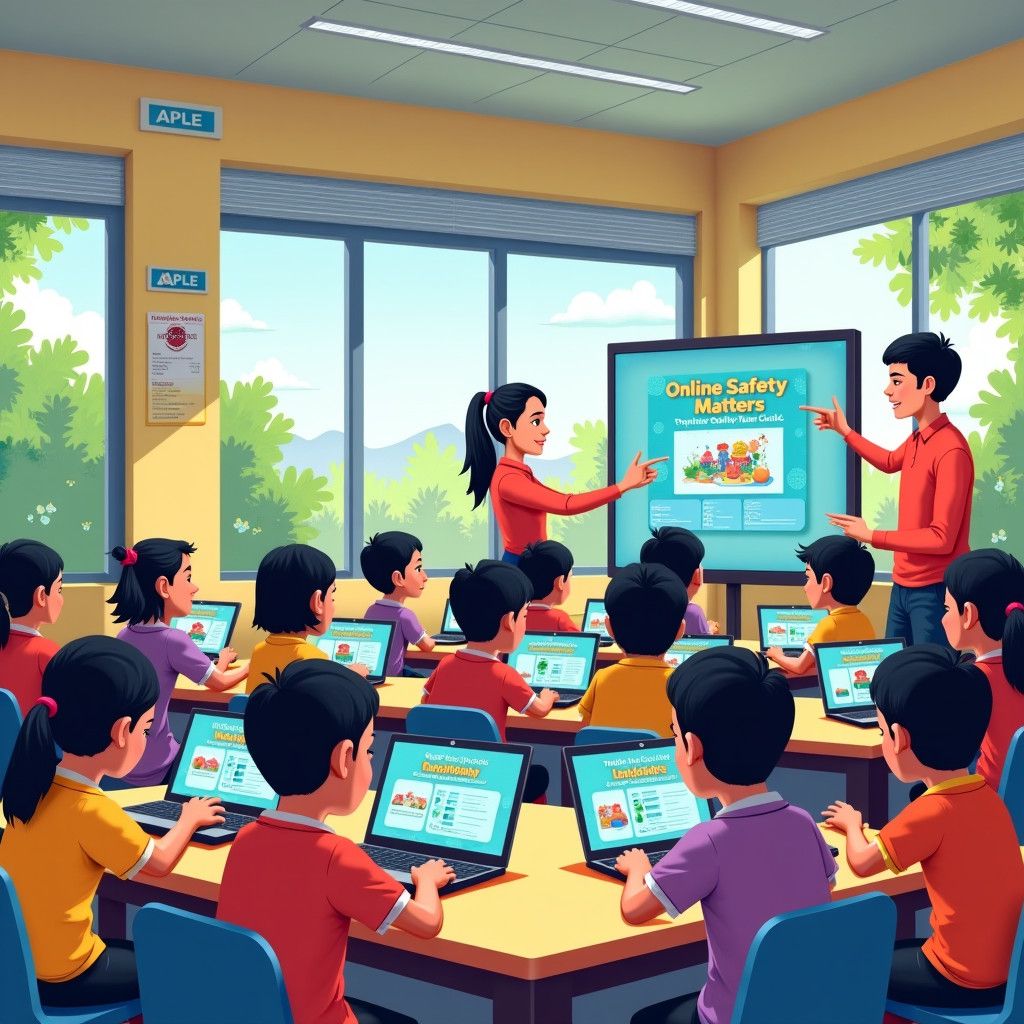In an era heavily influenced by technology, the importance of online safety education cannot be overstated. With the rising incidences of cyberbullying, online harassment, and the exploitation of vulnerable individuals, it has become crucial to equip young people with the knowledge and tools necessary to navigate the digital landscape securely. Recognizing this urgent need, the Cambodian Ministry of Education, Youth and Sport (MoEYS) has teamed up with the child protection non-profit organization, Action Pour Les Enfants (APLE), to launch a new initiative aimed at enhancing online safety education across the nation.
This collaboration marks a significant step forward in addressing the unique challenges faced by Cambodian youth in the digital domain. The initiative encompasses a comprehensive range of educational programs and resources designed to empower students, teachers, and parents alike. Through targeted training sessions and the integration of safety guidelines into school curricula, the initiative aims to foster a culture of online safety and responsible digital citizenship.
The Need for Online Safety Education
Recent trends indicate that children and adolescents are increasingly exposed to digital threats. According to the Ministry’s recent survey, around 65% of students reported having encountered inappropriate content online, while 32% acknowledged experiencing some form of cyberbullying. These alarming statistics underline the necessity for proactive measures in ensuring the safety and well-being of the youth in an increasingly interconnected world.
APLE, known for its commitment to child rights and protection, brings invaluable expertise to this initiative. Their previous campaigns have successfully raised awareness about child abuse and exploitation, making them well-suited partners for this endeavor. By leveraging APLE’s experience, the new initiative seeks to create a safer online environment for children in Cambodia.
Program Components
The initiative is structured around several critical components aimed at maximizing outreach and impact:
1. Curriculum Development: The program will develop age-appropriate online safety curricula that will be integrated into existing educational frameworks. By embedding safety guidelines into formal education, students will receive consistent messaging about the importance of online safety.
2. Training for Educators: Teachers play a pivotal role in influencing young minds. Consequently, the initiative includes comprehensive training workshops for educators to equip them with the necessary tools and knowledge to discuss online safety effectively in classrooms.
3. Parent Engagement: Recognizing the vital role parents play, the program will provide resources and training for parents to help them understand the online challenges their children face. This will empower families to engage in meaningful discussions about internet safety outside school.
4. Community Outreach: To broaden the initiative’s reach, community events and workshops will be organized to disseminate information. By engaging with local communities, the project aims to promote a collaborative approach to online safety.
5. Monitoring and Evaluation: A comprehensive evaluation strategy will be established to assess the project’s effectiveness over a three-year period. This will not only measure immediate impacts but also inform future strategies for expansion, ensuring that the program stays relevant and responsive to the needs of Cambodian children.
Potential Impact
The collaborative effort between the Cambodian Ministry and APLE stands to create a transformative impact on the safety landscape for children in Cambodia. By addressing the risks associated with online engagement and promoting informed digital citizenship, the program can significantly reduce instances of cyberbullying and exploitation.
Moreover, the initiative encourages resilience among youth by imparting skills necessary for identifying and addressing online threats. Enhanced awareness can foster a supportive community environment—for both learners and parents—where discussions about safety are normalized and prioritized.
Moving Forward
As the digital world continues to evolve, so too must efforts to safeguard our children within it. This initiative serves as a critical response to the pressing need for enhanced online safety education. With the support of both the Cambodian Ministry and APLE, this project has the potential to set a precedent for future safety programs within the region and beyond.
In conclusion, investing in online safety education is an investment in the future of a generation. It is an opportunity to transform how children interact with technology and understand their rights and responsibilities in the digital sphere. As this collaboration unfolds, it will be crucial to monitor its progress and adapt strategies to ensure it remains effective and responsive to the needs of its young audience.












